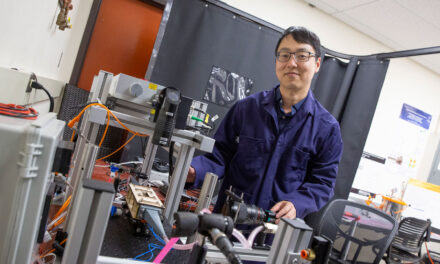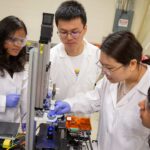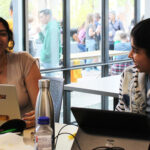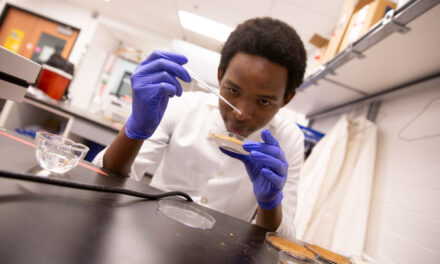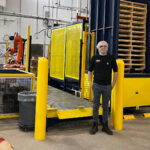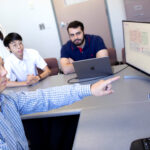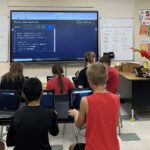
Using technology to advance learning
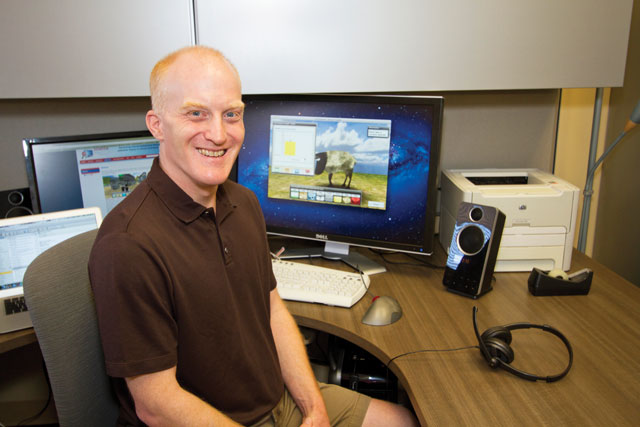
Brian Nelson is advancing work on computer-based learning and assessment techniques.
Brian Nelson says that learning in a typical classroom is nothing like learning in the real world. Nelson, an associate professor in the School of Computing, Informatics, and Decision Systems Engineering, is developing computer-based learning environments designed to immerse students in contextualized simulations of real-world activities to introduce them to scientific inquiry and content.
In a current NSF-funded study, SAVE Science (Situated Assessment in Virtual Environments for Science Content and Inquiry), Nelson is exploring ways to design and embed assessments into virtual worlds and find new ways to analyze the data.
Nelson’s first game in the project, Sheep Trouble, tests students on their understanding of how organisms adapt over time to a specific physical environment. In Sheep Trouble, students go to a farm where the farmer has recently brought new sheep from a remote island and added them to his herd. The new sheep have physical characteristics that cause them problems in their new environment. The local villagers think the sheep are afflicted with black magic and must be killed. Students must find out what the problems are.
As part of the study, Nelson and his colleagues at the University of Maryland and Temple University look for links between student results on standardized testing and the embedded assessments in SAVE Science.
“If there is little overlap, we want to know what that means,” Nelson says. “Can we get more interesting data about learning from these kinds of embedded assessments? What patterns of interactions could serve as a substitute for regular testing?”
Now on year four of the project, Nelson has added virtual world-based tests aimed at weather and climate, physics and air pressure.
He has expanded his work on assessments, teaming with researchers at the University of Maryland in data mining and analysis. In the Sheep Trouble module, they found that some students who demonstrated an understanding that different physical attributes were impacting the health of the new sheep, did not understand why this occurs. They also found that most students began the assessment by exploring the virtual farm randomly, but those that came into the test with an understanding of the concepts being tested narrowed down their investigation to relevant information sources much more quickly.
Nelson has published and presented extensively on the viability of educational virtual environments for situated inquiry learning and assessment. He hopes that by better understanding how students learn we can design more effective teaching methods and immersive learning environments in the future.


